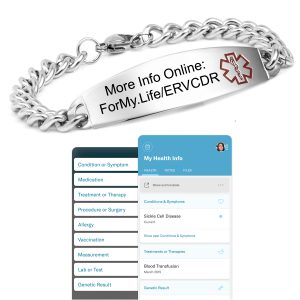Forgotten Childhood Events Can Affect Your Health
15th Apr 2022

Do you remember getting the chicken pox? How about mumps or measles? And, what about childhood surgeries? The measles outbreak of 2019 created a public health wake-up call, and reignited the national debate regarding vaccination safety. It also reminded many adults about how little they may know about their childhood vaccinations. Even parents who diligently recorded every appointment with their child’s pediatrician may not have passed along that information. And, as time goes on, we all find it harder to remember which childhood illnesses we were vaccinated against, and which ones we actually experienced. That’s why it’s important to start now to create an online Personal Health Record for you and your children.
What To Do?
If your parents are still alive, or your pediatrician is still practicing, you might be able to retrieve your childhood medical history from them, but keep in mind that doctors and hospitals only retain medical records for five to ten years following your last visit. And, because you’ll eventually need to know your parents’ medical history in order to make informed decisions about your own future health, waiting too long to collect that information could mean you’ll simply be out of luck.
Where Do You Begin?
So, let’s say you decide to take control of your medical history. First, you’ll want to dig up everything you can about yourself and your parents. And, if you’re a parent, you’ll want to record your children’s information, too. Who knows? Some day they may thank you for it. But, once you’ve collected all the medical info you can, the question becomes: what do you do with it all?
How Do you Store Your Information For The Future?
Several companies now offer cloud based storage for your medical history, neatly organized and retrievable from anywhere. These systems bring all your health information together and allow you to easily and selectively share it with everyone involved in your care. You can record your medical conditions, allergies, medications, and even attach files, photos and videos if you have them.
The Backpack Health Personal Health Record System is Free!
Most online personal health record systems are fee-based, ranging in cost between $25 to $75 per year. But, StickyJ Medical ID in association with Backpack Health offer a free, online solution that allows you to store your entire family’s medical history in the cloud, making selected parts accessible by whomever you choose. With Backpack Health, you’ll be able to securely access your family’s medical data via iOS, Android, or desktop, and the information can be entered and shared in multiple languages. So, if you or your family travels to a country where Spanish, German, Italian, French or Portuguese is spoken, Backpack’s system can automatically translate the emergency information you want to share with emergency medical personnel into the native language of the country you’re visiting. That way, a first responder will be able to read your medical history without having to know English.
What to Record in your Personal Health Information Account
Some of the things you’ll want to include in your personal health record account are:
- Chronic conditions (now and in the past)
- All of the medicines (both prescription and over the counter medicines) you take, including dosage and frequency
- Allergies (both food and drug)
- Dates of significant illnesses and surgical procedures
- Emergency contacts
- Names, addresses, and phone numbers of your healthcare providers, including specialists
- Immunization records
- Health insurance information, such as the name of your insurance company and key phone numbers for service
How Will EMS Personnel Access Your Personal Health Record Account?
Finally, it’s vital that first-responders know that you have an online personal health record, and how to access it. In an emergency, you may not be able to communicate with them, and they rarely go looking in your wallet or purse. So, it’s important to wear a medical id bracelet that directs them to your shared medical information at Backpack Health. While shopping at StickyJ Medical ID, customers can simply check a box to say they want (or already have) a free Backpack Health account. StickyJ Medical ID then engraves a unique web address on their bracelet, and when a first responder enters that URL into their smartphone or tablet, the individual’s emergency medical information will be displayed. StickyJ Medical ID also emails instructions to its customers telling them how to set up their Backpack account and link it back to the unique URL that’s engraved on their bracelet. It’s a fairly simple process, and it can help save your life.
Learn More Today
To learn more about Backpack Health and the emergency medical id linking service provided by StickyJ Medical ID, visit StickyJ Medical ID’s Personal Health Record information page.


